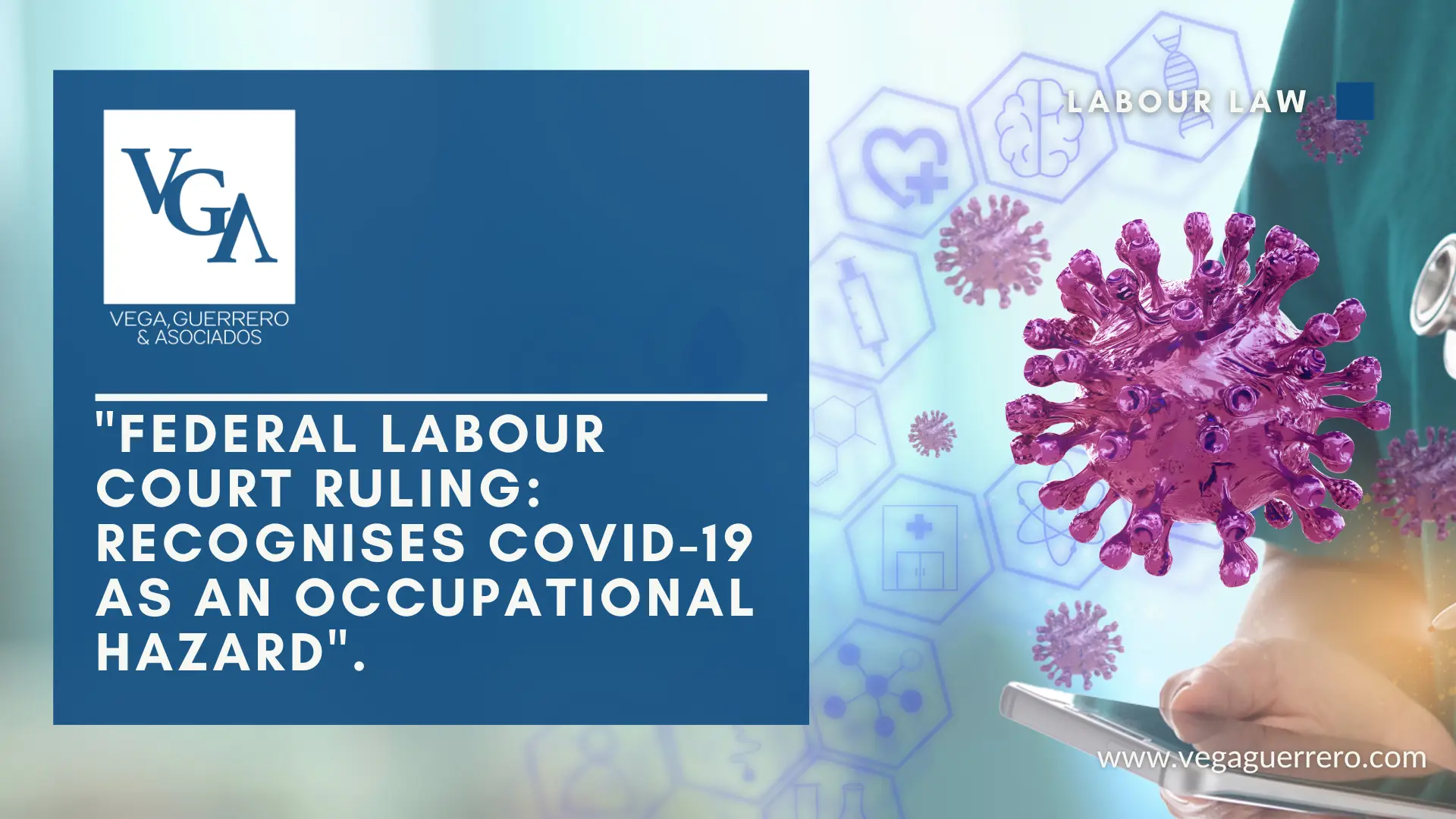The Labour Court for Individual Matters in the State of Tabasco has issued a landmark ruling, ordering the Mexican Social Security Institute and a grocery company to recognize COVID-19 contagion as an occupational hazard. However, before diving into the implications of this case, it is important to contextualize the issue in terms of occupational hazards.
According to Mexico’s Federal Labour Law, which establishes the basis for understanding the relationship between regulations and the actual circumstances that workers face, Article 473 defines occupational hazards as: accidents and diseases to which workers are exposed during the exercise of their duties.
On this occasion, we will only take as a basis the part of illnesses to which workers are exposed in Articles 475 and 475 Bis, highlighting the employer’s responsibility for occupational health and safety, as well as the obligation of workers to follow the established preventive measures.
The relevance of these legal precepts comes to life in concrete situations, such as the claim filed by the wife of the deceased worker. Her quest for recognition by IMSS of COVID-19 infection as an occupational disease, linked to her husband’s death during the first months of the pandemic, illustrates the need to address these risks effectively. IMSS’s initial refusal triggered a special individual and social security lawsuit, highlighting the importance of understanding and applying the legal provisions related to occupational hazards in real-world situations.
The ruling, in that case, emphasized that the spread of the virus and the high mortality during that period required a unique assessment of the case. Given the nature of COVID-19 and how it spreads, the court held that the assessment of the evidence should consider the specific circumstances of the deceased worker’s work environment, concluding that the worker’s exposure to COVID-19 was due to the work environment to which he was exposed, a decision that, while well-founded, is damaging as a precedent, as companies are fully exposed by the easy spread of the virus.
The employer, a grocery shop, could not prove that the worker performed his activities from home during the confinement. Therefore, the ruling ordered the updating of the widow’s pension received by the wife under the concept of occupational hazard, in accordance with article 71, section II, of the Social Security Law.
This ruling sets a worrying precedent for companies, recognizing the need to evaluate the circumstances and working conditions established in companies, as well as compliance with health standards and recommendations, and companies should be aware of the importance of ensuring safe working environments during force majeure situations, as they can directly affect legal liability.
The court’s ruling highlights the crucial need to assess work circumstances and business liability, highlighting the essential legal advice for businesses. At Vega, Guerrero & Asociados, we understand the legal complexities of business and offer legal services designed to ensure compliance in exceptional situations such as the current one. Our solid support ranges from the review of internal policies to litigation management, highlighting our unwavering commitment to legality and occupational risk prevention, adapting to the specific needs of each company.




